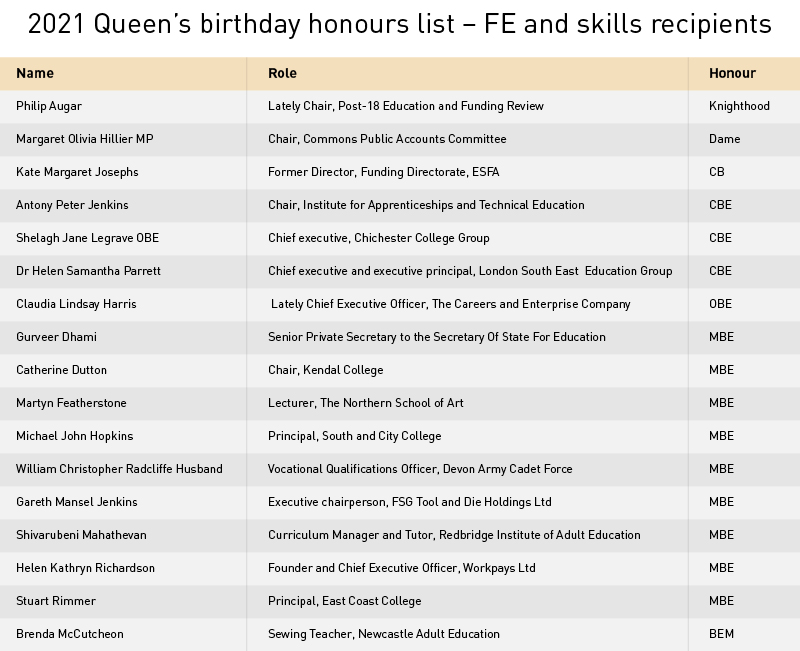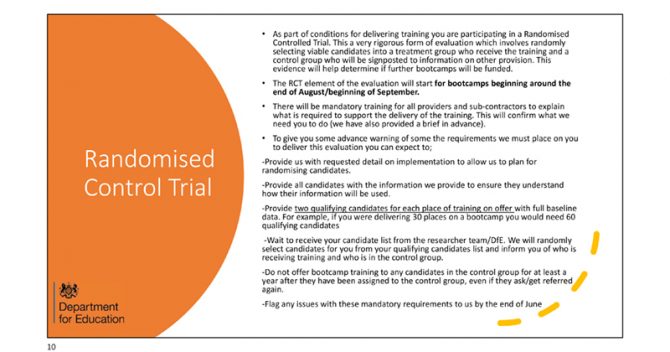Plans to hand the government’s apprenticeships quango new powers over technical qualifications are a “retrograde step” and introduce a conflict of interest, awarding bodies have warned.
The Federation of Awarding Bodies has sought legal advice over the Skills Bill ahead of its second reading in the House of Lords tomorrow.
A key proposal in the Bill is to give the Institute for Apprenticeships and Technical Education the ultimate sign-off power for the approval and regulation of technical qualifications in future.
In a position statement, seen by FE Week, the FAB says that while this may look like an “obvious extension” of remit, it “actually sets the scene for a muddled and cumbersome two-tier system of qualifications regulation emerging”.
The federation is concerned the move would reverse the “gains” of independent regulation that parliament intended in 2009 when it set up Ofqual.
Unlike Ofqual, the institute is a non-departmental public body directly accountable to ministers, not parliament.
FAB explains that Ofqual was created following a period of “significant scandals and instability” in the regulation of qualifications which resulted in the then Qualifications and Curriculum Authority being abolished.
It warns that the government is in danger of repeating the “mistakes of history by handing back day-to-day political control of technical qualification regulation directly to ministers via the institute”.
“We believe this to be a retrograde step as it will not secure strong public confidence in these important qualifications in future,” the statement says.
It goes on to claim that this part of the Skills Bill, in its current form, fails to meet “five Cs”: competence, coherence, competition, complexity and cost.
One of the biggest concerns for FAB is that the legislation would introduce a “material conflict of interest”, since the institute will be both a state awarding/accreditation body for technical qualifications (e.g. T Levels) as well as a regulator deciding which technical qualifications can be granted regulatory approval for public funding purposes.
“In an unprecedented move, this turns the institute into both a market participant in qualifications (by developing, accrediting and certificating its own technical qualifications) and a market regulator of technical qualifications, deciding which qualifications that they do not own can operate in the marketplace in future,” the briefing note said.
“We don’t have a problem with the institute being either a market participant or a market regulator, but we do not believe it is in the national interest to allow it to operate with both these functions in hand.”
Writing for FE Week, FAB chief executive Tom Bewick said the new power proposed for the institute “is the biggest flaw in the proposed legislation”.
“Without offering any real evidence of how outcomes will be better, a Conservative government has set upon a course to nationalise technical education.”
In response to the concerns, a DfE spokesperson said: “Now more than ever, the role of employers in the skills system is critical to our economic recovery and growth.
“The Bill will give the institute responsibility for ensuring that employers’ views are at the heart of the system, whilst Ofqual will continue to regulate and maintain education standards. We believe that both organisations (working together with awarding organisations) have a vital role to play to ensure the quality of technical qualifications.”
The Skills Bill does admit that by extending the institute’s approval powers, the “risks of duplication and inconsistency” in the qualifications market “are increased”.
To combat this, the institute will be required to cooperate with Ofqual to create a “single approval gateway” for technical qualifications.









